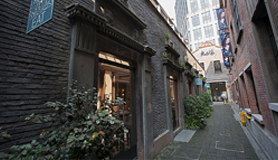
야즈드 역사 도시
야즈드 역사 도시는 특별하게 공들여 지은 흙건축의 건축 체계와 수천 년에 걸친 혹독한 환경에 적응한 인간의 생활방식을 증언한다. 야즈드는 사회 조직 전체와 전통적 연속성이 서로 연관되어 있는 도시이다. 역사 도시에는 와크프(Waqf, 이슬람교에서 공공선을 위해 재산을 사회에 기부하거나 증여하는 행위)의 기여로 건설된 워터시스턴·모스크·함맘·카나트 같은 공공 구조물들과 수준 높은 무형유산의 전통, 다문화 전통, 상업 전통, 수공예 전통 등이 보존되어 있다. 도시 전체가 흙으로 건설된 도시 가운데 가장 부유했던 곳 중 하나였던 야즈드는 환경 친화적 미기후를 창조한 특징적인 도시이다. 역사 도시 야즈드에 사는 사람들은 전통 공예와 축제 등에서 볼 수 있듯이 오늘날까지 평화롭게 공존하며 주택과 모스크, 배화신전, 시나고그, 마우솔레움(mausoleum, 조상을 모시는 영묘), 함맘, 워터시스턴, 마드라스(madraseh, 이슬람 종교학교), 바자 등을 포함한 이슬람교, 유대교, 조로아스터교 등의 다종교 복합건축물에 연계된 다양한 문화를 반영하고 있다.
[자세히보기]출처 : UNESCO
Historic City of Yazd
The City of Yazd is located in the middle of the Iranian plateau, 270 km southeast of Isfahan, close to the Spice and Silk Roads. It bears living testimony to the use of limited resources for survival in the desert. Water is supplied to the city through a qanat system developed to draw underground water. The earthen architecture of Yazd has escaped the modernization that destroyed many traditional earthen towns, retaining its traditional districts, the qanat system, traditional houses, bazars, hammams, mosques, synagogues, Zoroastrian temples and the historic garden of Dolat-abad.
[Learn more]Source : UNESCO










 HOME
HOME


 0
0




